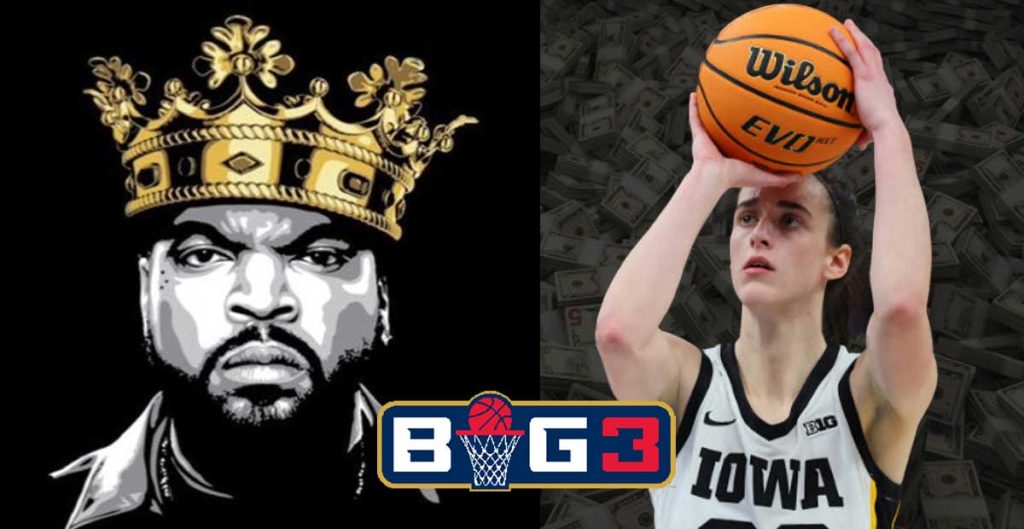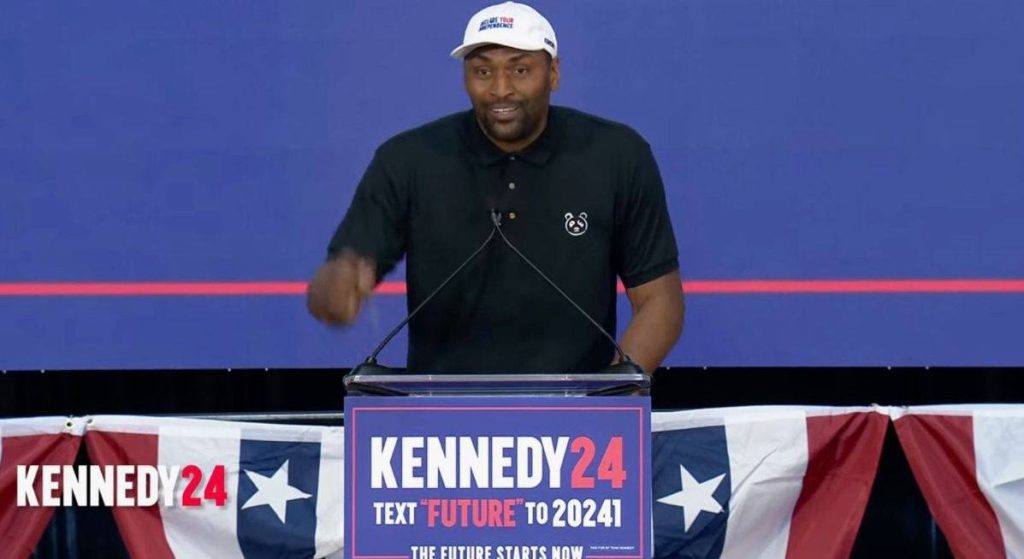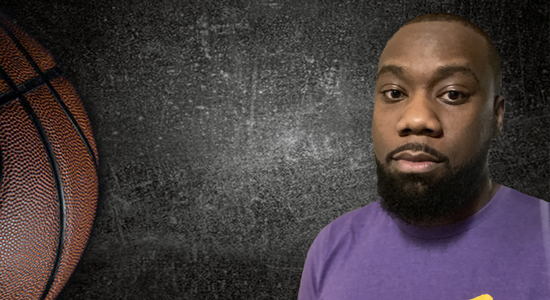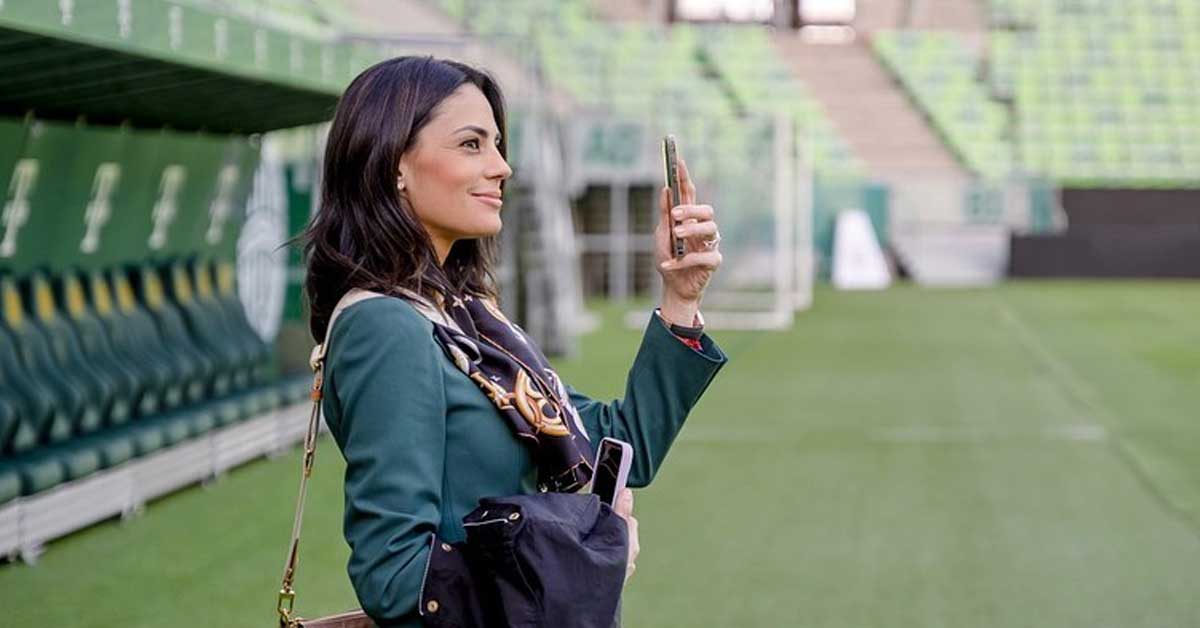
1 on 1 with Ornella Desirée Bellia | Director of Professional Football Relations & Development | FIFA

As a woman, sometimes you have to work three times more than normal to prove yourself, but I also believe that when you manage to get a reputation in such a male-dominated world, being a woman may become an asset.
Ornella Desirée Bellia
Director of Professional Football Relations & Development
FIFA
The Latest
Jontay Porter Banned From The NBA For Life
Iowa vs LSU: A Landmark Moment in Women’s College Basketball
Former NHLer Josh Ho-Sang Now A Rapper
Metta World Peace Endorses RFK Jr. for President 2024
1Tell us about your role as the Head of Professional Football at FIFA.
The Professional Football department, which is part of FIFA’s Legal and Compliance Division, manages the relations with global football stakeholders, including clubs, leagues and players representatives. The Professional Football department was indeed created to centralize the communications between FIFA and these important actors of the game, providing a contact point for the global football community.
Within this context, the Professional Football department is in regular contact with football stakeholders to further improve the overall football regulatory framework. Just to name some examples, the new rules on player loans as well as the new rules on football agents, were the result of long-lasting negotiations with all stakeholders. FIFA Professional Football plays a key role in these negotiations.
In addition, we also run projects aimed at professionalizing football all over the world, providing strategic assistance on governance and commercial aspects. This is in line with the FIFA President’s vision to make football truly global and create an ecosystem where more clubs, players and national associations from all around the world can compete at the highest level.
In this context, we have also launched an executive programme in Club Management to help smaller and medium-sized clubs from every corner of the world to improve their management and operations, and ultimately be able to compete at the highest level ‘off-the-pitch’.
Last but not least, we also supervise the management of several projects, such as the FIFA Fund for Players, a fund that provides financial support to players who have not been paid and have no chance of duly receiving the wages agreed with their clubs (around 5 million per year).
Another important project we supervise is the FIFA Club Benefit Programme. Under this programme, a share (209 million USD) of the FIFA World Cup benefits is distributed to the clubs of the players who participate in the FIFA World Cup.
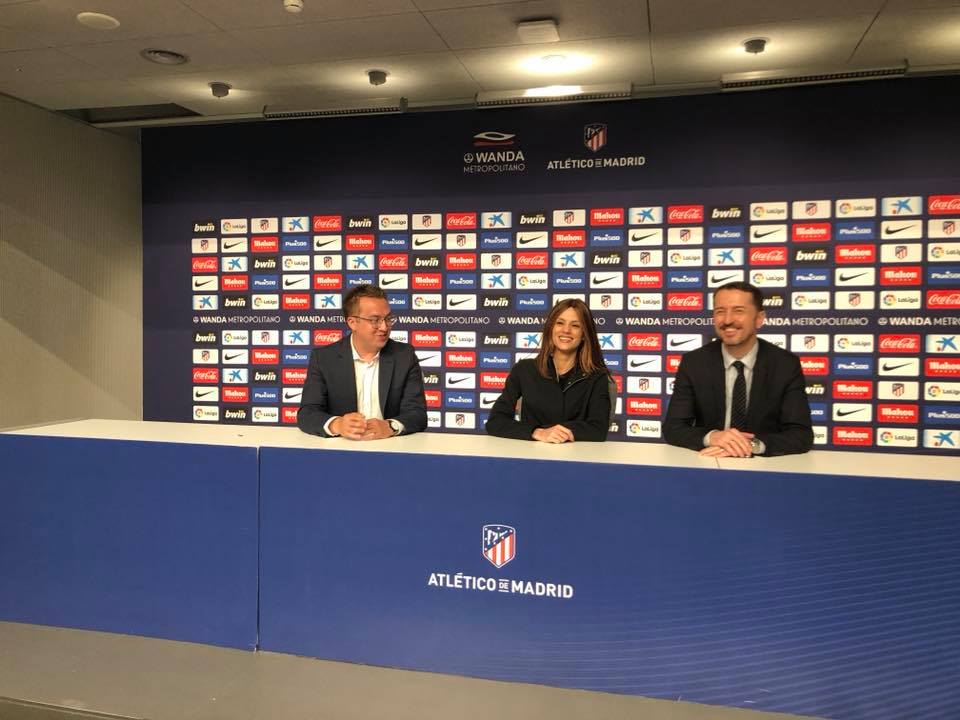
2Given your experience as Head of Legal Affairs at the Association of European Professional Football Leagues and your extensive background in legal affairs, how has your leadership style changed? What stuck with you as you stepped into the role of Head of Professional Football?
My style has evolved with the experience, and as a result of the different roles I have held. I now have a much greater focus on strategy rather than on operational matters.
In general, I have a very open and inclusive style. I make it clear to my team that while I have my own views and opinions, I want to hear their ideas too. I always push them to be proactive, creative and think on their own.
I have to recognize that it took me some time to understand the importance of delegating and giving my team the responsibility to make decisions. I think this is key to make people grow and perform better and more efficiently. People need to feel empowered, not micromanaged.
In addition, when you run many projects, you cannot be on top of everything, you need to delegate and trust your team.

3With your educational experience from Harvard Law School – Boston, and UEFA-partnered IMD Business School, what are some of the academic theories that you apply in the sport industry regularly?
I would say that thanks to these academic courses, I have come to understand the importance of developing strong soft skills.
These academic programmes have pushed me to work on my personal development and on my emotional intelligence.
When it comes to specific theories that I apply in my daily work, I would say those learnings in negotiation are the ones I apply the most, and not just at work!
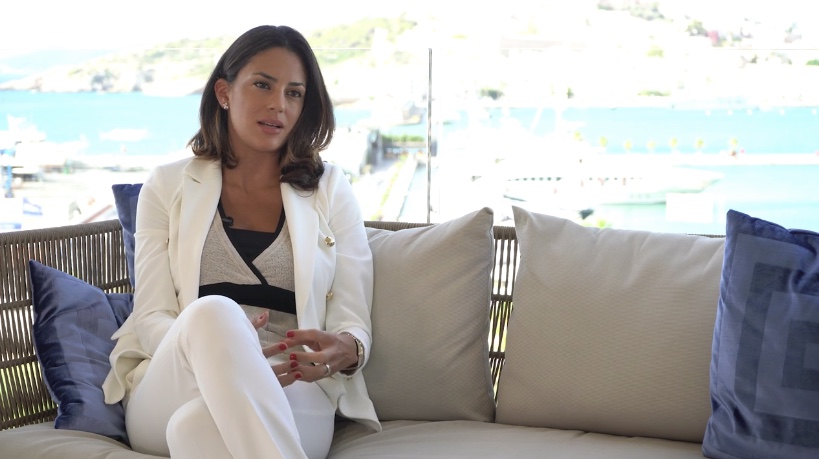
4I see that you studied in the UEFA Women’s Leadership Programme at IMD Business School. Given your experience, in your honest opinion, do you feel like things are changing for women in sports?
Definitely. Things are changing and I can proudly say that FIFA is leading the way.
Our General Secretary is a woman, and a significant number of women are in decision-making positions at FIFA. That being said, I believe there is still a lot of work to do in football, especially in some countries like my beloved home country, Italy. Moreover, both men and women have gender bias that can disadvantage women in the workplace.
This question reminds me of when, after being shortlisted for a job in Italy and being told I was the best candidate on the list, I was told by the (female) recruiter that she was afraid of hiring a woman of my age because of the likeliness of getting pregnant in the near future!
Another anecdote that I will always remember was when a famous Italian football agent told me that nobody was going to take me seriously in football because I was a woman.
As a woman, sometimes you have to work three times more than normal to prove yourself, but I also believe that when you manage to get a reputation in such a male-dominated world, being a woman may become an asset.
5How do you go about establishing change in your organization when it comes to women in leadership positions?
Women and men have different strengths. By harnessing both, organizations and their people can thrive.
Organizations who get this right can have a competitive advantage. They can expect higher level of innovation, more creative thinking and thus an impact on finances as well, as demonstrated by several studies.
Organizations should have a strategy for inclusive excellence. FIFA is already doing it and as a woman, I feel proud of being part of a forward-thinking organization like FIFA.
6Do you have any advice for women in sport when it comes to effective leadership in a male-dominated industry? If you could list three things, that would be great.
Three pieces of advice I have or women in sport regarding leadership are:
- Be authentic. Do not behave like a man to be seen as a leader. If you emulate men, you will be perceived as fake. It’s important to not lose that feminine touch. Women are by nature more emotional, supportive, and warm. Keep that.
- When you realize people have unconscious bias, put it on the table and verbalize it.
- Create a network of great women around you and empower them.
[get_current_post_author_pic_and_name]
It was an honour to be able to speak with such an established and confident woman within the sport industry! Ornella Desirée Bellia, Head of Professional Football at FIFA, is extremely passionate in her work. Ornella is in charge of facilitating stakeholder relations within FIFA's Legal and Compliance Division, where she serves as an essential point of contact for the global football community. Her strategy includes aspects such as improving regulatory framework and running initiatives that target professionalizing the sport of football all over the globe. Ornella discussed how her education from Harvard Law School and IMD Business School allowed her to build essential soft skills that have been necessary to her success. A true inspiration to women in sport, Ornella also emphasized the power of using your voice as a woman in the industry. She has firsthand experience of the bias that women face when working in sport, and she has learned that being authentic and uplifting the community of women in the industry will help establish effective leadership. It was truly amazing to be able to hear the advice that Ornella had for sport professionals, as it's something that we can all benefit from and utilize moving forward in our careers in sport.





